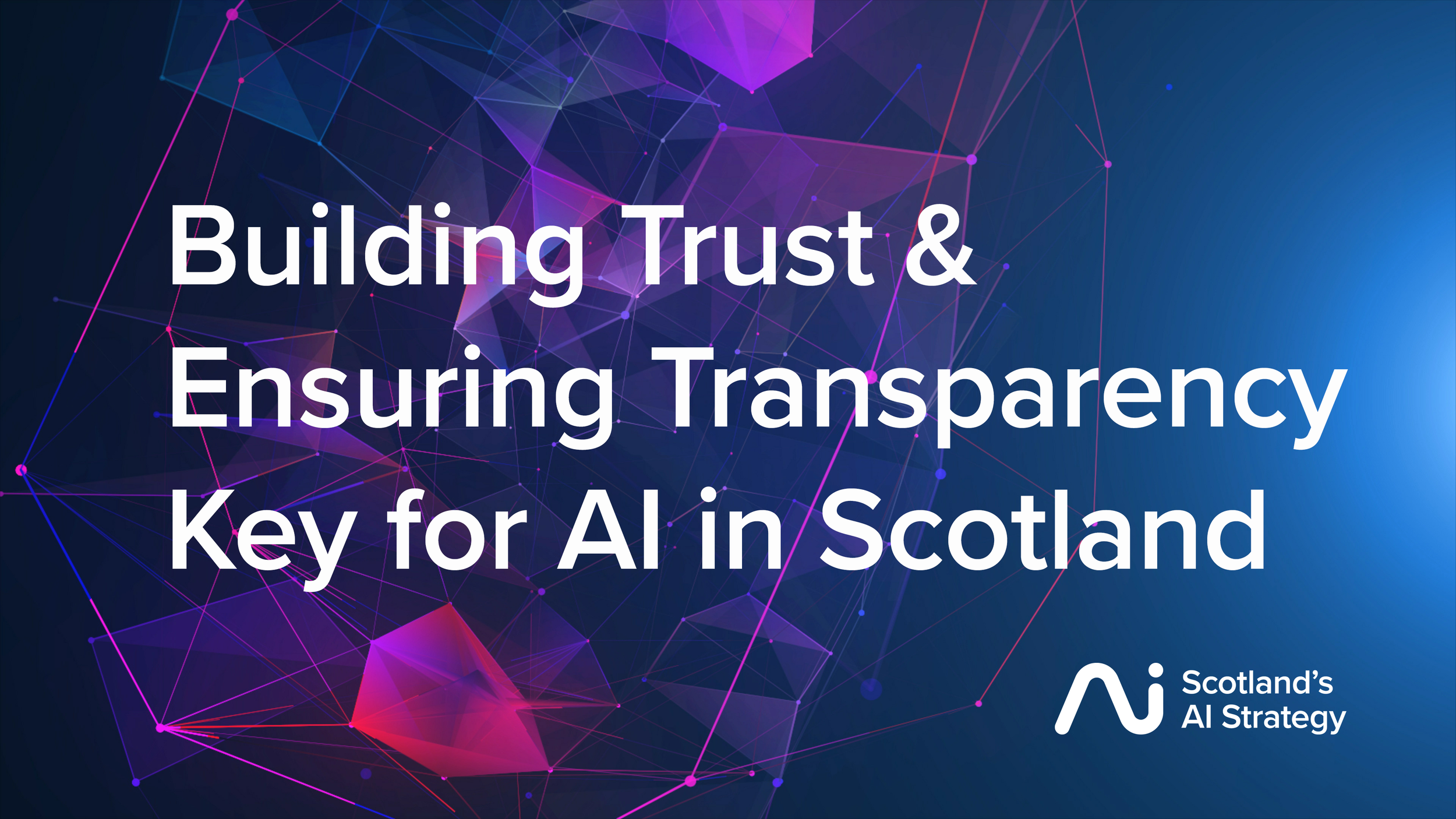Building Trust and Ensuring Transparency is Key for AI in Scotland
Scotland’s AI Strategy was launched in March 2021 with the aim to help Scotland become a leader in the development and use of trustworthy, ethical, and inclusive AI. The importance of these issues was highlighted in a recent YouGov poll commissioned by Synthesized which gauged the attitudes of people in Scotland to artificial intelligence.
Trustworthy
The poll results showed that only 1 in 5 people trust the way that AI is being used and developed, and only 2% believe strongly that it is being used and developed in a trustworthy way.
These figures show the importance of building trust with the general public and also the importance of ensuring people can understand the way in which AI is developed. These are two areas the Scottish Government and Scotland’s AI Strategy are committed to.
The Scottish Government is currently funding a CivTech Challenge and working in partnership with Finnish consultancy Saidot whose mission is “to help organisations build a better world by creating AI people can trust.” The project is looking at building trust and agency in the use of AI by the public sector and by enabling a meaningful dialogue with the public; you can hear more about it in this podcast where Jeremy Darot of the Scottish Government caught up with CEO and Co-Founder of Saidot, Meeri Haataja. This Challenge builds on one last year that explored how to develop explainable AI for the public sector.
The vast potential of AI means that it is fast becoming a staple part of many businesses and organisations and those who do not adopt it could fall behind. Like many organisations, Synthesized appears keen to promote ethical and responsible use of AI and machine learning and recently made freely available a tool for instantly visualising bias in data. Building trust in the technology is important to encourage the uptake of it, particularly in the public sector.
Transparent
The survey also showed that more than three quarters of respondents think that there needs to be transparency in how AI is used to make decisions. To help address this the Scottish AI Alliance is working on the Scottish AI Playbook, an open and practical guide to how we do AI in Scotland. It will introduce the vision, principles, and practices we will adopt to realise our AI Strategy and encourage others to explore and embrace AI by giving best practice examples and guidance on use of the technology.
You can read more about this important work in our recent blog: Scottish AI Playbook - Where are we now?.
When developing the Strategy, we recognised the need for ongoing public dialogue to ensure our approach is and remains fair and inclusive. The Community Circle of the Scottish AI Alliance will be the main forum for this, complemented by other engagement mechanisms in time.
AI for Good
Less than half those polled believe that - used ethically and responsibly - AI could be good for society, and the environment. However, young people were more likely to believe that, used correctly, AI can help us and the planet.
We agree with the young people, that used correctly AI can be used for good. There are already good examples of this across Scotland in all sectors. For example, start-ups like Space Intelligence or bennu.ai who are using AI to help predict climate models and tackle waste, or in farming where the Scottish Crop map has been developed to improve land usage, and the Data for Children Collaborative with UNICEF.
Bringing together Scottish Government, The Data Lab, the University of Edinburgh and UNICEF, this was established to use data science to improve the health and wellbeing of children in Scotland and globally. It’s already delivering results, contributing to UNICEF’s The Climate Crisis is a Child Rights Crisis report that presents the Children’s Climate Risk Index. This uses data to generate new global evidence on how many children are currently exposed to climate and environmental hazards, shocks and stresses.
These are just a few of the encouraging projects using AI for good in Scotland. We see AI as a tool with transformative potential and we want to harness this for societal benefit. Therefore, we must make sure that we are encouraging, enabling, and promoting the right kind of AI - trustworthy, ethical, and inclusive.

